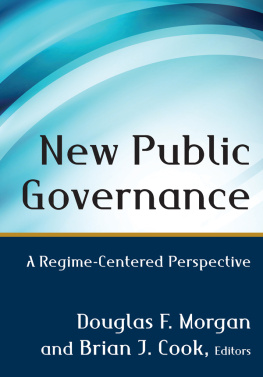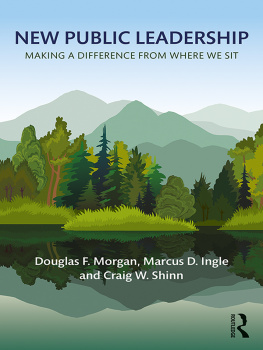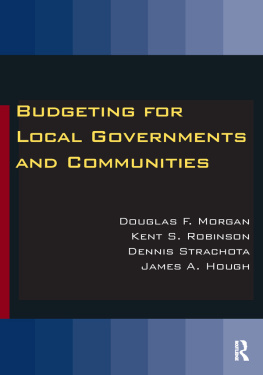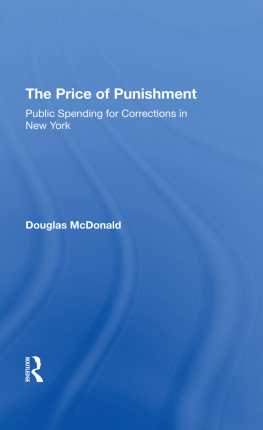First published 2013 by M.E. Sharpe
Published 2015 by Routledge
2 Park Square, Milton Park, Abingdon, Oxon OX14 4RN
711 Third Avenue, New York, NY 10017, USA
Routledge is an imprint of the Taylor & Francis Group, an informa business
Copyright 2013 Taylor & Francis. All rights reserved.
No part of this book may be reprinted or reproduced or utilised in any form or by any electronic, mechanical, or other means, now known or hereafter invented, including photocopying and recording, or in any information storage or retrieval system, without permission in writing from the publishers.
Notices
No responsibility is assumed by the publisher for any injury and/or damage to persons or property as a matter of products liability, negligence or otherwise, or from any use of operation of any methods, products, instructions or ideas contained in the material herein.
Practitioners and researchers must always rely on their own experience and knowledge in evaluating and using any information, methods, compounds, or experiments described herein. In using such information or methods they should be mindful of their own safety and the safety of others, including parties for whom they have a professional responsibility.
Product or corporate names may be trademarks or registered trademarks, and
are used only for identification and explanation without intent to infringe.
Library of Congress Cataloging-in-Publication Data
Morgan, Douglas F., 1943
Foundations of public service / Douglas F. Morgan, Richard Green, Craig W. Shinn, and
Kent S. Robinson.Second edition.
pages. cm.
Includes bibliographical references and index.
ISBN 978-0-7656-3459-7 (pbk.: alk. paper)
1. Public administrationUnited States. 2. Public administrationUnited StatesCase
studies. I. Title.
JK421.F68 2013
351.73dc23
2012038674
ISBN 13: 9780765634597 (pbk)
This second edition of Foundations of Public Service builds on the lessons we have learned over the past 30 years teaching public service practitioners. Our students come from all sectorspublic, private, and nonprofitand they possess varying degrees of experience as street-level supervisors, middle managers, and strategic or top-level administrators. We have written Foundations of Public Service to help these present and future practitioners make sense out of the everyday public responsibilities to which they have dedicated their lives.
We construe the term public service broadly, so that it includes not only those who work in government but also those who work in nonprofit organizations and private firms that carry out public responsibilities through contracts, charters, or other authorizing instruments. This definition also comprises special districts, which cover a wide range of governmental, quasi-governmental, and private-sector entities that perform specialized functions for the public. Though few realize it, special districts are by far the most numerous governing entities in the United States. Together, these organizations in the public, nonprofit, for-profit, and civil society sectors coproduce the public good. Successful governance and administration depend largely on how well public service leaders understand and use their discretionary authority to develop creative synergy among these partners.
We have written this book from a governmental perspective. There are three reasons why partners in the coproduction process benefit from such a perspective. First, private and nonprofit managers who maintain contractual or other types of relationships with government need to understand the distinct values, obligations, functions, and processes that form the governmental perspective. This can help them manage their relationships with government more effectively. Second, by dint of their formal relationships with government, organizations in the private and nonprofit sectors add to, or broaden, their responsibilities to the public. Their fiduciary responsibilities increase in ways that often entail changes in both their practices and their business methods. Third, most public employees need to understand the governance complexity that provides the distinctive context for carrying out their public duties. Surprisingly, even public servants with extensive experience may know little about how the larger governing context shapes and influences their obligations and practices. In the absence of such knowledge, many feel buffeted by forces they do not understandforces that transform them from leaders of change into victims of circumstance. Our challenge in this book is to help these professionals become more aware of the connections between their daily work and the broader context of governance and, in so doing, empower them to become leaders in responsible governance rather than pawns of political and administrative games or corks floating in a sea beyond their control.
The central theme of this second edition, like the first, is democratic constitutionalism. Under democratic constitutionalism, sovereignty resides in the people of the United States through their constitutions and charters. Thus, American systems of governance are called rule-by-law systems: The people govern through these deliberately created structures of authority. And the people can adopt new principles and change how our various governance systems operate. The administrative implication of this approach is that public servants must acquire the competencies needed to govern in addition to the competencies needed to manage. The second edition of Foundations of Public Service expands and develops this central theme in several important ways.
ELABORATION OF OUR CONSTITUTIONAL APPROACH TO PUBLIC ADMINISTRATION THEORY AND PRACTICE
The major modification to this second edition is the addition of a new introductory chapter that makes explicit the constitutional foundation for public administration theory and practice. In the first edition, our legal approach was more implicit than explicit. In the first chapter of this edition, however, we make our approachone of democratic constitutionalismexplicit, contrasting it with the traditional approach that grounds public administration in the management sciences.
EXPANDED DISCUSSION OF CIVIL SOCIETY AND NONPROFIT ORGANIZATIONS
We have expanded our discussion of the role of civil society in producing the common good. This is in keeping with our thesis that the nonprofit sector and civic organizations, both formal and informal, are critical partners of government in producing the common good. In particular, we have extended our coverage of nonprofit organizations because of the increasing reliance by government on these formal civic organizations to provide a variety of contracted social services. In the near future, demands for balanced budgets and reduced government spending will shrink resources for social services. Private charitable donations and foundation grants will not be able to make up for the broad loss in government support, and many nonprofit contract providers will face growing stress, consolidation, and closure. In the face of shrinking resources, community civic organizations and other informal responses will grow in importance. Without more mindful attention by government leaders to the role that formal and informal civic organizations play in creating the common good, public service as a whole will be adversely affected.














